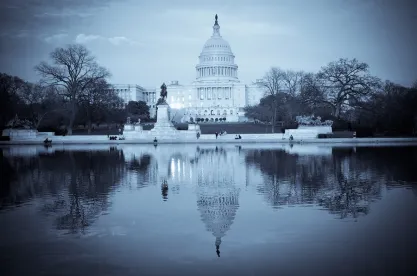This afternoon, the United States Senate voted on a targeted COVID-19 relief package, which was introduced by Majority Leader McConnell earlier this week. The bill failed, with a vote of 52-47. This bill would have provided $500 billion in funding and is an edited version of both the $1 trillion HEALS Act and a separate GOP "skinny" bill, neither of which were considered for floor votes. The House passed their version of an additional relief package in May, the $3.5 trillion HEROES Act. It was passed by Democrats on a party line vote and was not taken up by the Senate. This narrow bill is seen by many as a re-opening for one last chance at a stimulus bill before Congress breaks going into the November elections.
The Senate's bill:
-
Reestablishes the Federal Pandemic Unemployment Compensation program, with payments of $300 per week for unemployed Americans, lasting through December 27, 2020. The program ceased on July 31, and previously was $600 per week as established by the CARES Act.
-
Provides structure for liability relief and protection, promoting the reopening of the economy and schools. Hospital workers, business owners, schools, colleges and universities, non-profit institutions, and local government agencies are covered with protections.
-
Mandates exclusive federal causes of action for personal injury claims and medical malpractice claims. Such provisions would apply to cases related to virus exposure beginning December 1, 2019 and ending October 1, 2024.
-
Allows for the creation of a second round of Paycheck Protection Program funding extending to December 31, this time adding requirements for the application process and narrowing the pool to businesses with 300 or fewer employees. It would also increase the program's lending authority to $816.6 billion.
-
Contains provisions for school choice long sought by DeVos and some conservatives. It would provide two years of tax credits for contributions to scholarship-granting organizations, and would also create a program that provides one-time funding to SGOs to provide scholarships for tuition at private schools or to cover other educational expenses. Education funding totals $105 billion.
-
Forgives the United States Postal Service a $10 billion loan from the Treasury Department that was authorized in the CARES Act.
-
Provides $31 billion for vaccine, therapeutic, and diagnostic development, as well as distribution. It also provides $2 billion in grants for state stockpiles.
-
Works to improve the Strategic National Stockpile by promoting domestic partnerships with regards to the medical supply chain and stockpiling capacity.
-
Does not provide additional aid to state and local governments, allow for more Provider Relief Funding, or include funding for an additional round of stimulus checks.
-
Is controversial among Republicans, as some are opposed to any additional funding; Senate Democrats, led by Minority Leader Chuck Schumer, believe that this bill provides nowhere near enough funding.





 />i
/>i

